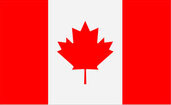ONE Sports PowerPlay Blog
Common Disaster or Simultaneous Death
By definition, a common disaster or simultaneous death happens when people die at the same time or under circumstances where it is hard, even impossible, to tell who died first. True, modern forensics can often determine this, but in cases where it is exceedingly impossible to make that exact determination, something is required to sort this out. For our purposes, it is important to know who died first to pass property to the survivors in a timely fashion, especially when there are children involved.
There remains a lot of confusion in sorting out the issue of who died first. When drafting the final will, most of my clients are instructed by their lawyer to give all their property at death to the other spouse. If one spouse outlives the other, most wills say all the property goes to the children at the death of the second spouse. In many cases, the lawyer will instruct the client to include a fixed number of days, often 30, as the number of days the beneficiary must outlive the person who created the will. This progression of steps makes complete sense; it eliminates any delays and keeps the costs of administration and probate low. Without allowances in the will (usually referred to as a common disaster clause) the distribution of assets in a situation where it appears both spouses died at the same time, becomes more complicated. Enter provincial law. Without a valid will or common disaster clause, the provinces and territories have created their own rules as to what happens when two people die at the same time – and there are two sets of laws, depending on where you live; and let’s not even try to sort out what happens in Quebec without qualified legal help!
This brings us to life Insurance, where a life insurance policy common disaster clause works differently from a clause in a will or under provincial law. Again, the exact details are too complicated for this blog but suffice it to say specific planning will be required. The same applies for jointly owned property, such as a home owned as joint tenants with the right of survivorship. In this case, it is possible that the transfer of ownership on a common disaster scenario can take place entirely outside of the deceased’s estate. In this case, what the will says, if in fact a will even exists, becomes irrelevant.
Ok, so what to do? At ONE Sports, we advocate the following:
1) Where appropriate, have the discussion with your life insurance specialist to see if designating a contingent beneficiary(s) to the policy makes sense
2) Have a valid, updated will, that addresses the possibility of a common disaster
3) Ensure that the laws where you live or own property are taken into account by the lawyer drafting the final will document
4) If you own a business or have business interests, discuss putting a buy-sell agreement in place or discuss funding their potential obligations with life insurance.
All in all, the most important issue is putting pen to paper and getting that formal will in place. Discussing a potential common disaster is just one other important step along the way.


